Abstract
A total of 89 adult male Thai patients who had acute, uncomplicated falciparum malaria were treated in a double-blind randomized trial with a single oral dose of two or three tablets, each consisting of 250 mg mefloquine, 500 mg sulfadoxine, and 25 mg pyrimethamine (MSP). The two-tablet regimen produced a cure rate (S response) of 93%, the three-tablet regimen a cure rate of 98%. The mean duration of parasitaemia for the two- and three-tablet groups was 50 and 29 hours, respectively, while the mean duration of fever was 43 and 40 hours, respectively. Differences between the groups were not statistically significant. Tolerance was good at both dose levels. The main side-effects were abdominal discomfort, nausea, vomiting, dizziness, and diarrhoea, but these were mild, transient, and required no specific treatment. The results of haematological and biochemical investigations and of urinalysis revealed no drug-related changes following administration of MSP. The electrocardiograms of some patients revealed sinus bradycardia or sinus arrythmia, but these conditions were transient, symptomless, and clinically not significant.
Full text
PDF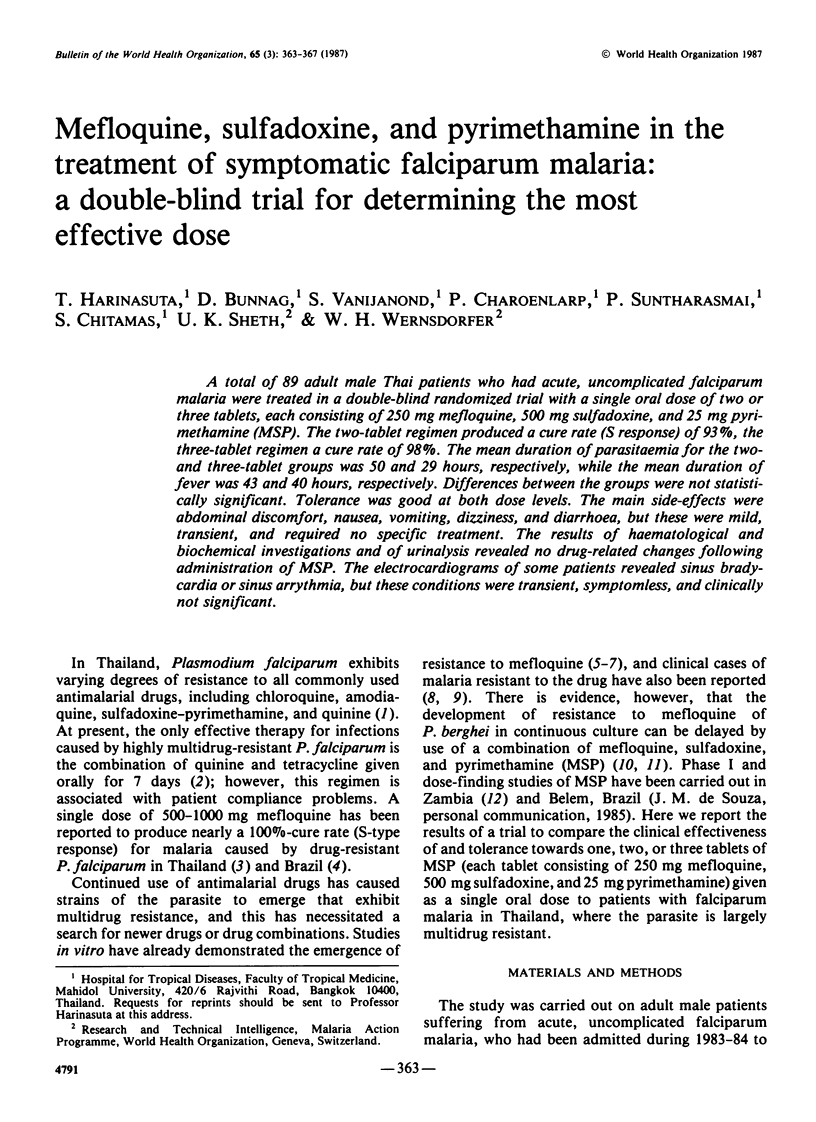
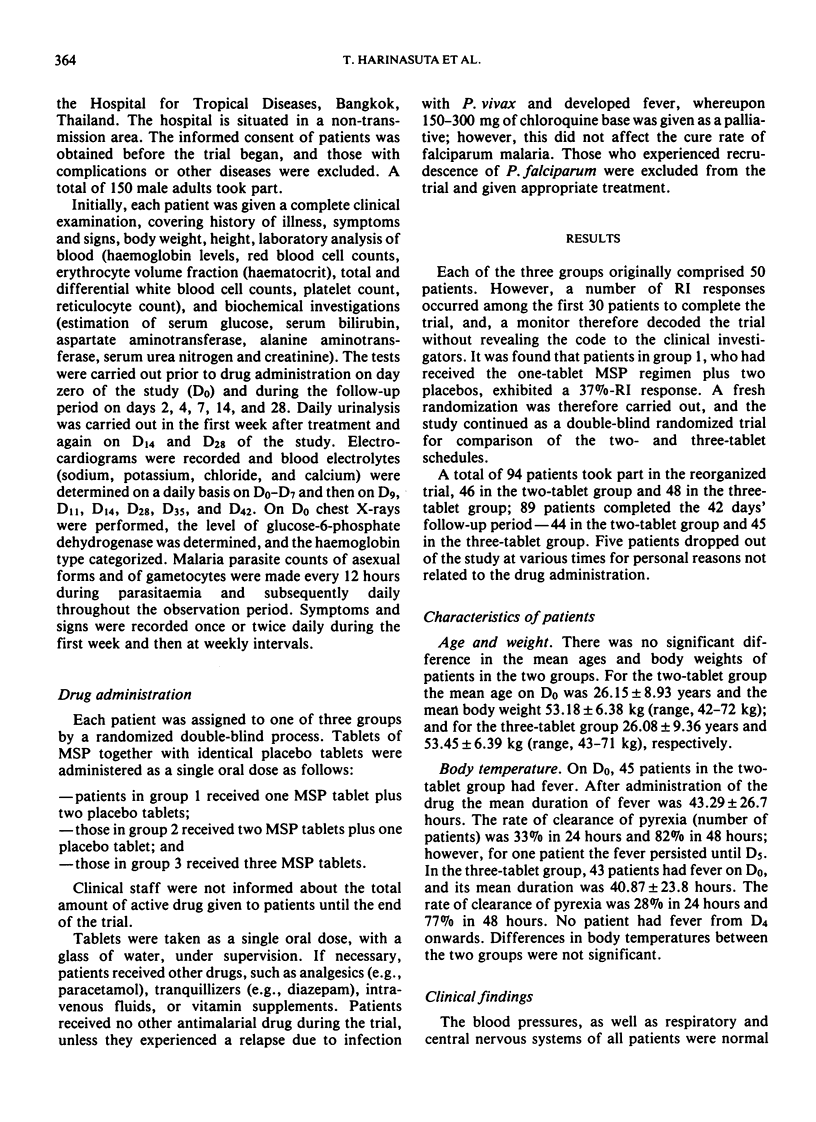
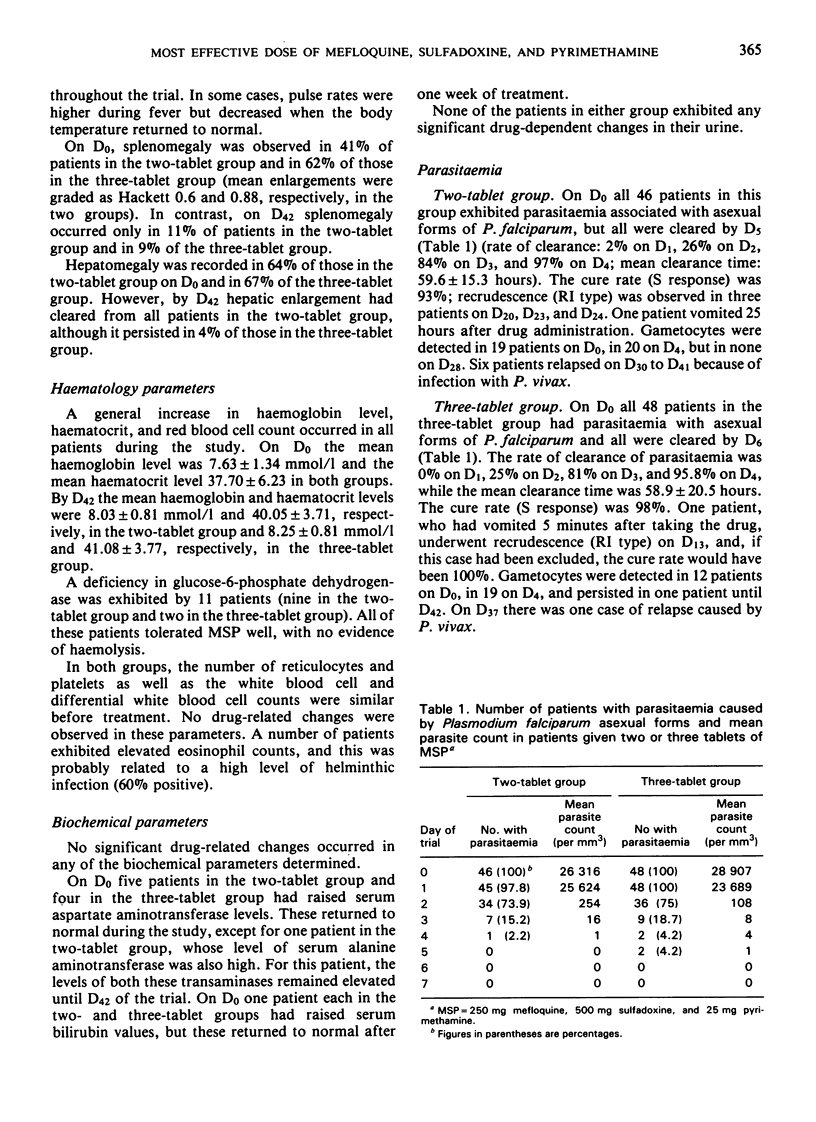
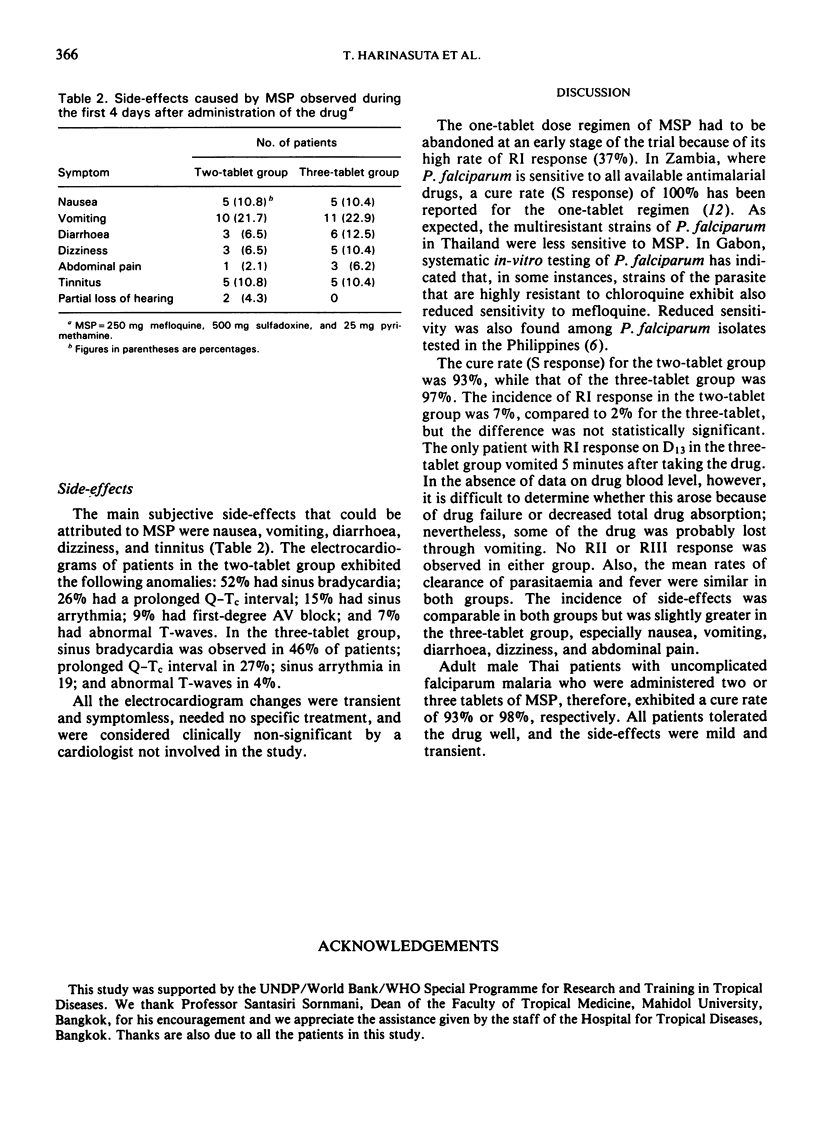
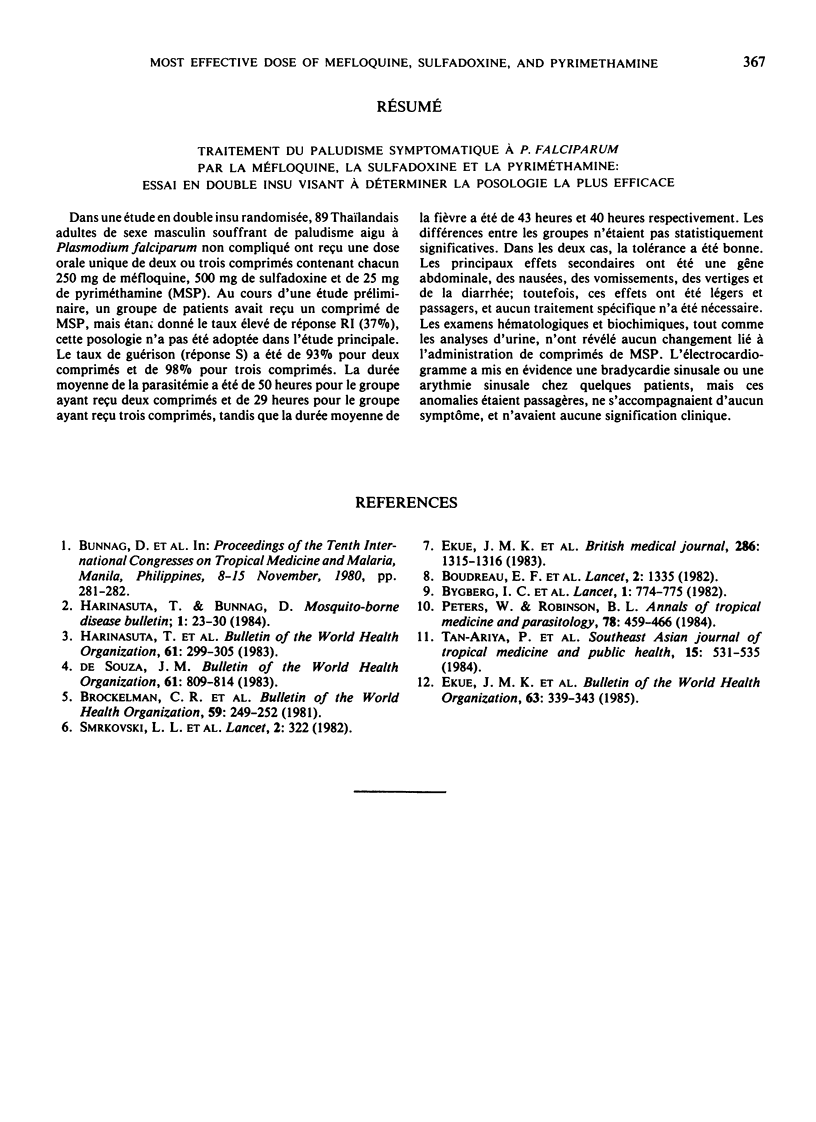
Selected References
These references are in PubMed. This may not be the complete list of references from this article.
- Brockelman C. R., Monkolkeha S., Tanariya P. Decrease in susceptibility of Plasmodium falciparum to mefloquine in continuous culture. Bull World Health Organ. 1981;59(2):249–252. [PMC free article] [PubMed] [Google Scholar]
- Ekue J. M., Simooya O. O., Sheth U. K., Wernsdorfer W. H., Njelesani E. K. A double-blind clinical trial of a combination of mefloquine, sulfadoxine and pyrimethamine in symptomatic falciparum malaria. Bull World Health Organ. 1985;63(2):339–343. [PMC free article] [PubMed] [Google Scholar]
- Ekue J. M., Ulrich A. M., Njelesani E. K. Plasmodium malaria resistant to chloroquine in a Zambian living in Zambia. Br Med J (Clin Res Ed) 1983 Apr 23;286(6374):1315–1316. doi: 10.1136/bmj.286.6374.1315-a. [DOI] [PMC free article] [PubMed] [Google Scholar]
- Harinasuta T., Bunnag D., Wernsdorfer W. H. A phase II clinical trial of mefloquine in patients with chloroquine-resistant falciparum malaria in Thailand. Bull World Health Organ. 1983;61(2):299–305. [PMC free article] [PubMed] [Google Scholar]
- Peters W., Robinson B. L. The chemotherapy of rodent malaria XXXV. Further studies on the retardation of drug resistance by the use of a triple combination of mefloquine, pyrimethamine and sulfadoxine in mice infected with P. berghei and 'P. berghei NS'. Ann Trop Med Parasitol. 1984 Oct;78(5):459–466. doi: 10.1080/00034983.1984.11811850. [DOI] [PubMed] [Google Scholar]
- Smrkovski L. L., Buck R. L., Alcantara A. K., Rodriguez C. S., Uylance C. V. In vitro mefloquine resistant Plasmodium falciparum from the Philippines. Lancet. 1982 Aug 7;2(8293):322–322. doi: 10.1016/s0140-6736(82)90285-9. [DOI] [PubMed] [Google Scholar]
- Tan-Ariya P., Brockelman C. R., Menabandhu C. Mefloquine-pyrimethamine-sulfadoxine combination delays emergence of mefloquine resistant Plasmodium falciparum in continuous culture. Southeast Asian J Trop Med Public Health. 1984 Dec;15(4):531–535. [PubMed] [Google Scholar]


